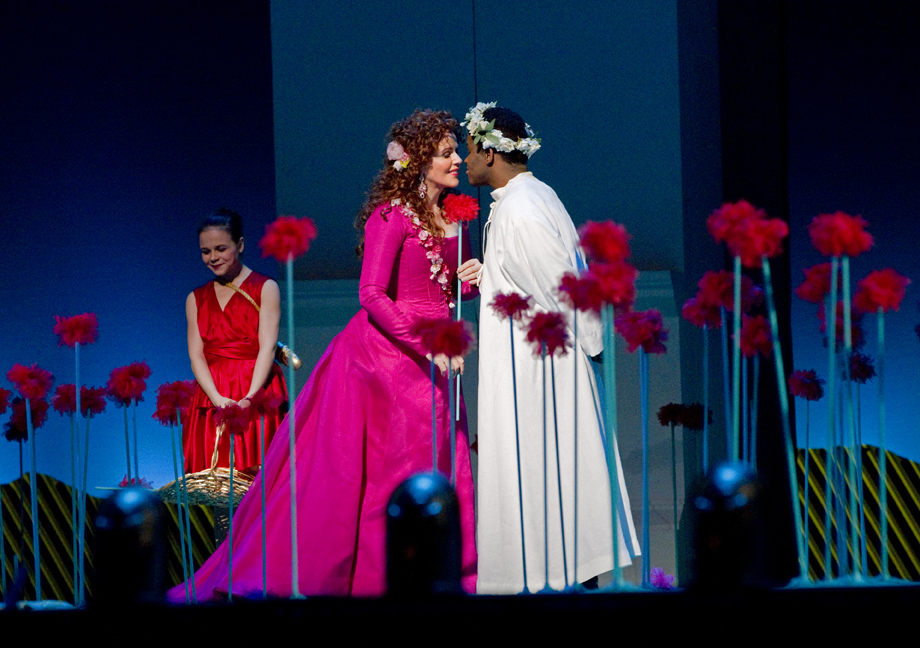This “Odyssey” was a feast for eyes and ears. Viewers were guided by the American soprano Renée Fleming on walks through St. Petersburg’s streets and squares and on boat rides on its canals, and were also invited into the magnificent Czarist Winter Palace, Peterhof Palace and Yusupov Palace, in whose glittering theaters and ballrooms Fleming and the Russian baritone Dmitri Hvorostovsky presented concerts of songs and operatic scenes.
The music was mostly Russian, but began with duets from two Verdi operas: “Il Trovatore” and “Simone Boccanegra.” The confrontation between Count Luna and Leonora in the former presaged the vocal and emotional intensity that infused the whole program, but stopped before the climactic moment when Leonora secretly drains the poison in her ring, though Fleming actually wore a ring that looked as if it had been chosen for that purpose. The recognition scene between Boccanegra and Amelia in the latter depicts the unexpected reunion of a father with his long-lost daughter; it was an outpouring of joy and love.
The program closed with the final scene from Tchaikovsky’s “Eugene Onegin,” an opera the two singers have performed together at the Metropolitan Opera to great acclaim, and have made their signature collaboration. For this, they used the host palace’s lay-out: the camera followed Hvorostovsky as he hurried up the wide, regal staircase to make his entrance, every inch the impatient lover.
Needless to say, the singing was wonderful. The performers entered so deeply into their roles that they were able to immediately establish an atmosphere and create real characters, without scenery, props or costumes, using only their voices and personalities. Even if one did not understand the words or know the operas, one could guess what they were singing about. The State Hermitage Orchestra under Constantine Orbellian accompanied them with care and sensitivity, but sounded too discreet and distant.
Alternating in songs by Rachmaninov, Rimsky-Korsakov, Medtner and Tchaikovsky, the singers adjusted their voices admirably to fit a smaller, more intimate room. Fleming was partnered by the Russian pianist Olga Kern, who recently won the Van Cliburn Competition, Hvorostovsky by his regular pianist, Ivan Ilja. The Bechstein piano they used looked and sounded beautiful. Again, music proved to be the best ambassador and bridge-builder between nations.

